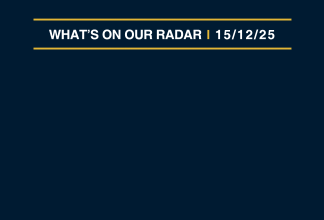The Taming of Inflation: Is a Soft Landing in Sight?
Written by Vijai Kumar
Published on August 16, 2022
minute read
Share:
Tiff Macklem may be seeing his name in the news a little more often than he'd like these days. As Canada's central bank governor, one of his main jobs is to fight inflation. In July, inflation in Canada slowed to 7.6 per cent from 8.1 per cent a month earlier. Yet the dip is unlikely to offer much consolation to central bank officials tasked to keep annual inflation around 2 per cent.
Around the world, surging prices have morphed into a global menace affecting economies and households alike. How did we arrive at this point? Can the Bank of Canada wrestle inflation and keep it under control without tipping the economy into a recession? Let's take a look.
How did we get here?
The seeds of inflation were planted during the pandemic.
With many people stuck at home in early 2020, the global economy ground to a halt. Government income support kept struggling households afloat.
In Canada, most pandemic restrictions ended in the spring of 2022 thanks to a surge in vaccine uptake. Pent-up demand ensued, and people wanted more cars and furniture than factories could deliver. The labour market, hampered by initial lockdowns, was suddenly hot. Amid labour shortages, wages jumped as firms scrambled to fill vacancies.
Those factors pushed prices higher. Then Russia invaded Ukraine, rupturing global energy and food supplies.
"A lot of the upside inflation surprises over the last year have been globally driven," says Nathan Janzen, assistant chief economist at RBC Economics Research.
"But domestically driven inflation pressures have also been building because the economy has recovered much faster than expected from the pandemic. Higher wages are adding to incomes and households have accumulated a large stockpile of savings during the pandemic that is backstopping spending even as prices and interest rates rise," Janzen adds.
How does the Bank of Canada tame inflation?
The Bank of Canada battles inflation by increasing the policy interest rate (also known as the overnight rate). This determines other borrowing costs in the economy, such as the interest rates on credit cards, mortgages and car loans.
When borrowing costs edge higher, there are fewer loans taken out, and fewer dollars to go around in the economy. Fewer dollars mean less economic activity, which leads to weaker spending and lower demand. Higher mortgage payments, for example, mean some households have to tighten their belts. Businesses may also lay off employees or slow hiring to accommodate for lost profits. The logic is simple: Central banks hope that reduced money circulation will help curtail demand—and therefore inflation.
In July, the Bank of Canada delivered a surprise rate hike of one per cent, the largest one-time hike since 1998, citing the need to combat stubbornly high inflation, which hit a nearly 40-year high of 8.1 per cent in June.
Recession worries?
Central banks' maneuvering of interest rates can be a hard medicine to swallow. Following rate increases, policymakers are watching for signs of a recession, a period in which gross domestic product (GDP) shrinks for two consecutive quarters alongside other falling economic indicators.
In Canada, recession risks have yet to materialize. For now, quarterly GDP is growing, unemployment is at record lows, and households are spending. Though according to a recent survey by the bank of Canada, high inflation and interest rate hikes have Canadians feeling less confident about their future finances.
The Canadian Centre for Policy Alternatives (CCPA) recently reported that in the last 60 years, there were only three occasions where the Bank of Canada had successfully reduced inflation by quickly raising interest rates. In each case, a recession followed. According to the think tank, 1981-83 saw unemployment rising by 4.2 per cent following rapid interest rate hikes. In 1981, inflation reached 12.47 per cent and the overnight rate rose to as high as 19 per cent. A recession began in the third quarter of that year.
The road ahead
One phrase has appeared in greater frequency in news reports: “soft landing." In economic parlance, it refers to a cyclical economic slowdown where inflation is tamed without causing a recession.
This may be difficult to achieve. RBC is the first Canadian bank to predict a moderate and short-lived recession in 2023.
Instead of slowly increasing rates in 2021 when inflation started to rear its head, central bankers assumed inflation was “transitory." Some economists believe that by “front loading" interest rates now (making massive hikes early), policymakers can ease price pressures without triggering an economic downturn. There are early signs that price increases will likely peak soon following the recent lower readings of inflation in both the U.S. and Canada. The Bank of Canada predicts that inflation will finally drop back into their one- to three-per-cent target range in 2024.
Before that happens, more interest rate hikes are expected to come. Can the Bank of Canada achieve a “soft landing?" That will be hard, Janzen says, pointing to central banks' resolve to prevent high inflation from becoming entrenched.
“We expect central banks are less worried about hiking interest rates too quickly in the near-term than they are about not hiking enough and risking a much more damaging scenario for the economy down the road," he says.
“The good news is that, provided inflation eases as we expect it will, central banks could be in a position to begin reversing interest rate hikes in the second half of next year."
RBC Direct Investing Inc., RBC Dominion Securities Inc., RBC Global Asset Management Inc. and Royal Bank of Canada are separate corporate entities which are affiliated. RBC Direct Investing Inc. is a wholly owned subsidiary of Royal Bank of Canada. RBC Direct Investing Inc. and RBC Dominion Securities Inc. are Members of the Investment Industry Regulatory Organization of Canada and the Canadian Investor Protection Fund. Royal Bank of Canada and certain of its issuers are related to RBC Direct Investing Inc. RBC Direct Investing Inc. does not provide investment advice or recommendations regarding the purchase or sale of any securities. Investors are responsible for their own investment decisions. RBC Direct Investing is a business name used by RBC Direct Investing Inc. ® / ™ Trademark(s) of Royal Bank of Canada. RBC and Royal Bank are registered trademarks of Royal Bank of Canada. Used under license.
© Royal Bank of Canada 2022.
Any information, opinions or views provided in this document, including hyperlinks to the RBC Direct Investing Inc. website or the websites of its affiliates or third parties, are for your general information only, and are not intended to provide legal, investment, financial, accounting, tax or other professional advice. While information presented is believed to be factual and current, its accuracy is not guaranteed and it should not be regarded as a complete analysis of the subjects discussed. All expressions of opinion reflect the judgment of the author(s) as of the date of publication and are subject to change. No endorsement of any third parties or their advice, opinions, information, products or services is expressly given or implied by RBC Direct Investing Inc. or its affiliates. You should consult with your advisor before taking any action based upon the information contained in this document.
Furthermore, the products, services and securities referred to in this publication are only available in Canada and other jurisdictions where they may be legally offered for sale. If you are not currently a resident of Canada, you should not access the information available on the RBC Direct Investing Inc. website.
Explore More

7 Ways to Get Ahead Financially in 2026
How you might invigorate your finances and put your money to work more intentionally this year
minute read

Economic Outlook: Uncertainty is Here to Stay, So What's Next?
Takeaways from the Economic Club of Canada’s Annual Event
minute read

3 things: Week of December 15
What the Inspired Investor team is watching this week
minute read
Inspired Investor brings you personal stories, timely information and expert insights to empower your investment decisions. Visit About Us to find out more.







